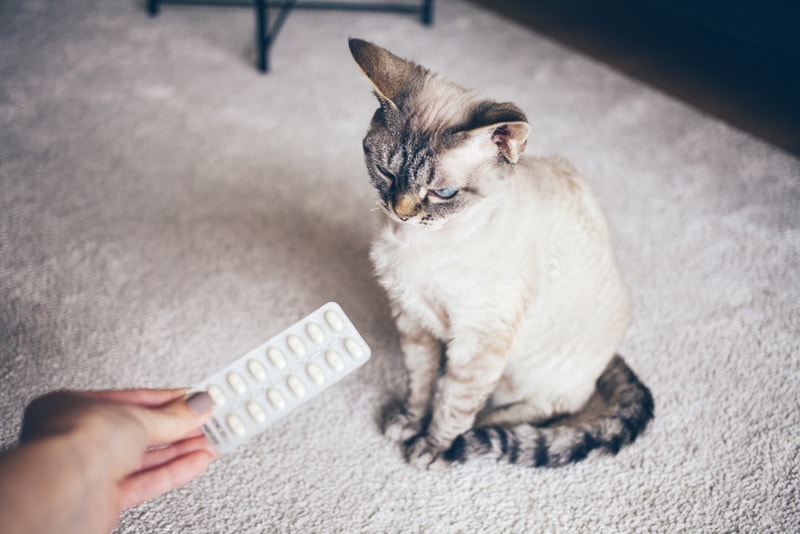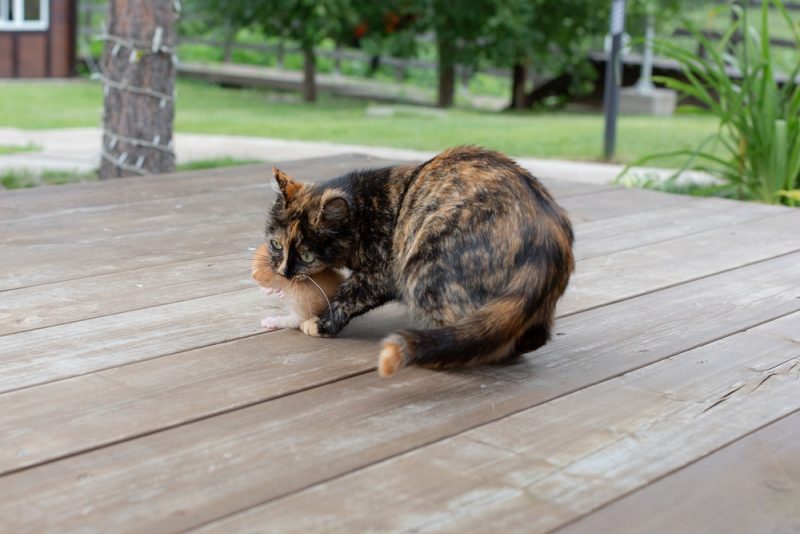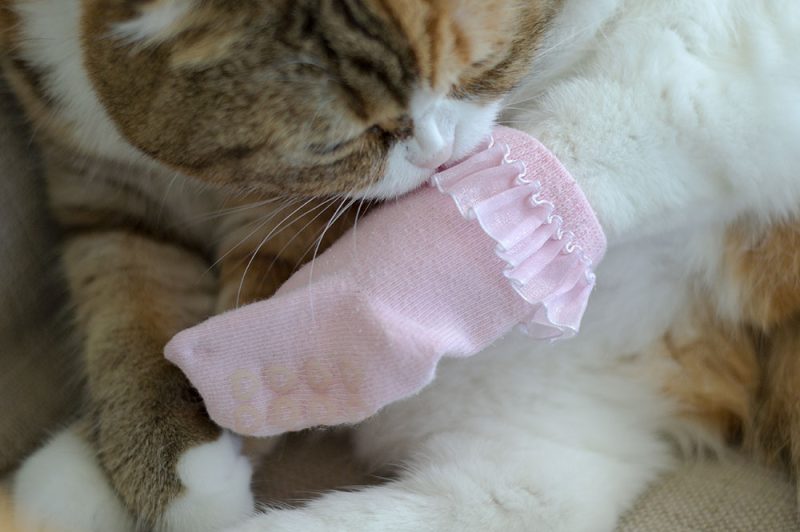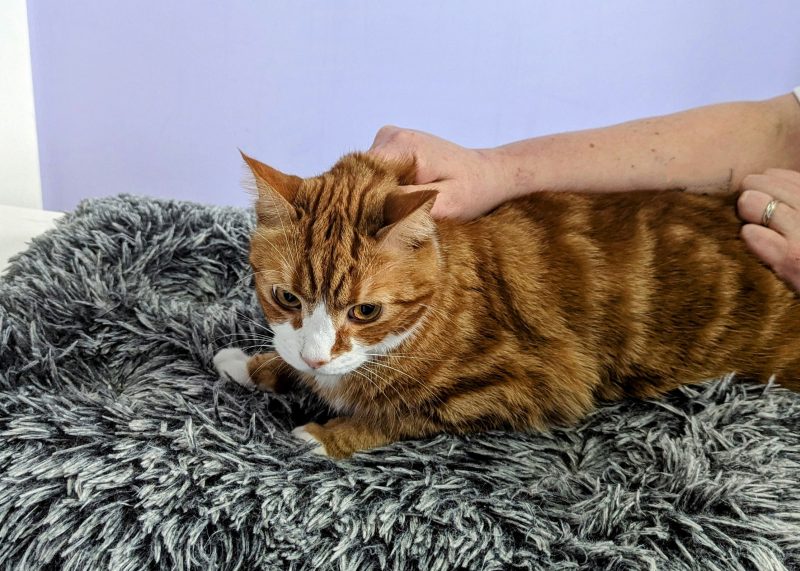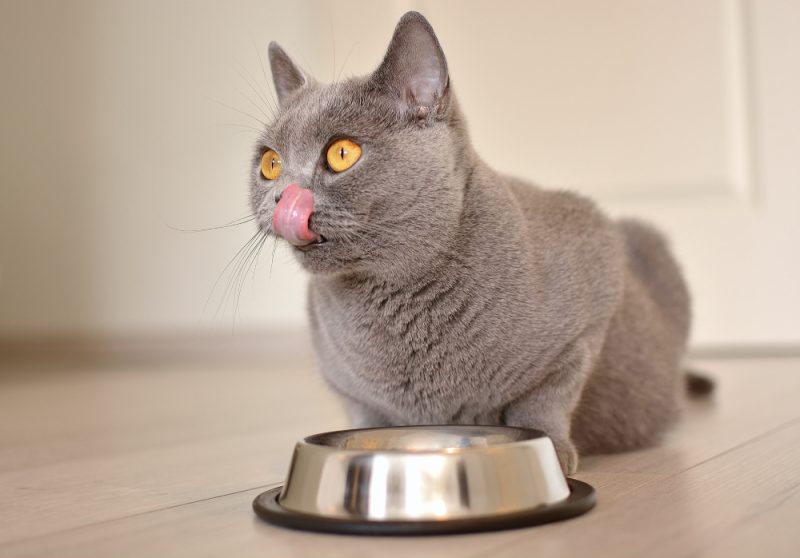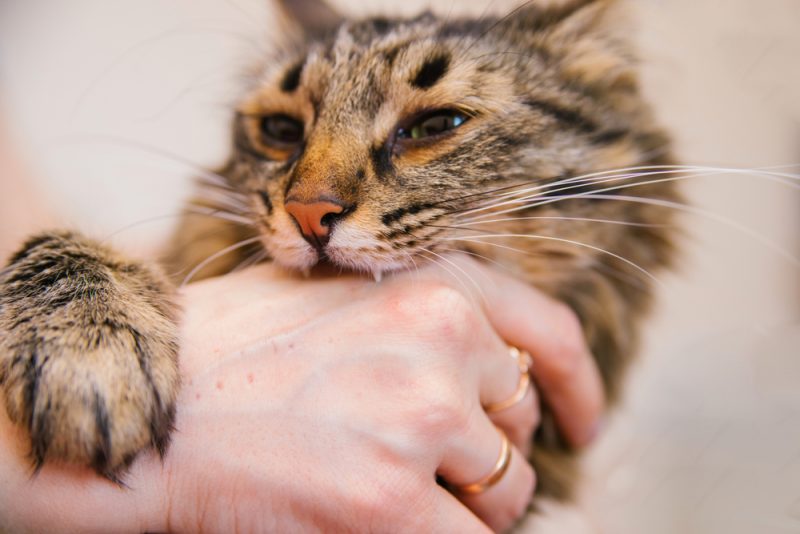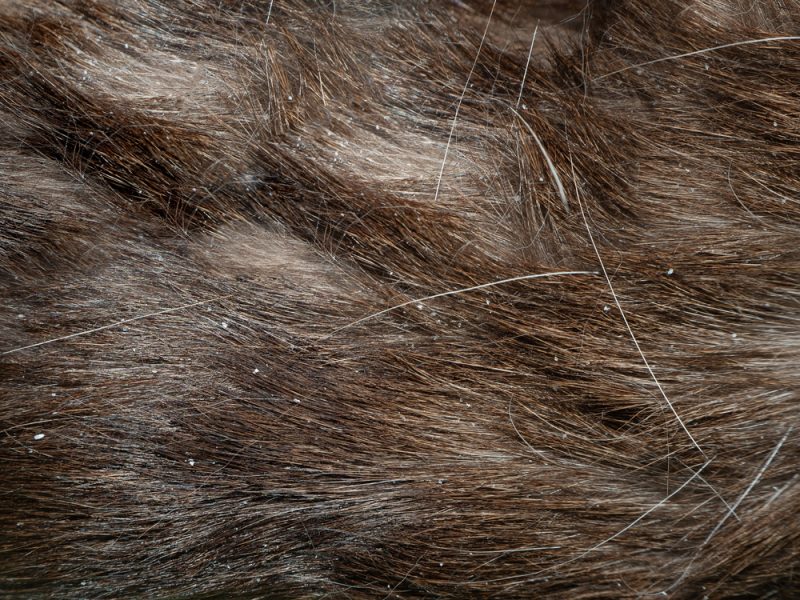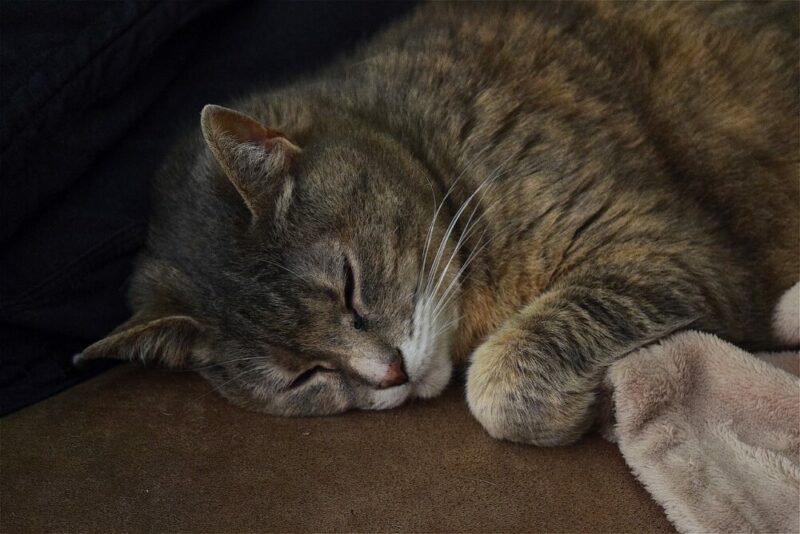If your dog is sick, it’s easy to wonder if your cat might also get sick. Fortunately, while some ailments and infections can pass back and forth between dogs and cats, most are species-specific. Let’s go over the ailments that cats can get from dogs.

The 5 Possible Ailments Cats Can Get From Dogs
Read on to learn about some ailments your cat could get (or vice versa) from your dog.
1. Respiratory Infections
While some respiratory infections are species-specific, Bordetella is a bacteria that can be spread between species such as dogs and cats. It is more common for pets in high-risk areas, such as catteries and boarding facilities.
Prevention
There is a vaccine to help protect against Bordetella. Not all veterinarians utilize the vaccine, so if your boarding facility requires it, you must talk to your veterinary team. It is not considered a core vaccine for cats.
If you need to speak with a vet but can't get to one, head over to PangoVet. It's an online service where you can talk to a vet online and get the advice you need for your pet — all at an affordable price!

2. Intestinal Parasites
Your cat can pick up intestinal parasites in the environment from other animals, including dogs. The most common intestinal parasites are zoonotic, meaning you can get them from your cat or dog: roundworms and hookworms.
Prevention
Certain flea and heartworm prevention products, such as Revolution Plus, also provide monthly protection against roundworms and hookworms. Your veterinarian should also perform regular intestinal parasite fecal exams on your dog and cat, treating when appropriate.
3. Dermatophytes
Dermatophytes, or ringworms, are fungal infections. Some are species-specific, but others can be contagious between animals. (Some are also contagious to people.) If one of your pets shows skin issues, separate them and schedule an appointment with your veterinarian as soon as possible.
- Scaling or crusty skin lesions
- Hair loss
- Broken hairs, particularly around a scaly region
- Changes in coat or skin color
- Pruritus or itching
Prevention
Dermatophytes can live in the environment for an extended period. If a pet shows signs of ringworm, separate them from your other animals. You’ll want to disinfect any common areas. If you bring a new pet home, it’s always a good idea to quarantine them until they are examined by your vet and given a clean bill of health.

4. Rabies
Rabies is a scary virus because it is virtually 100% deadly. Cats can get the virus from affected dogs and wild animals, such as raccoons and foxes. Bats are another reservoir for the virus. Humans can also get rabies from animals. The virus causes neurologic changes, including depression and aggression. The virus is transmitted via saliva and potentially scratches.
Prevention
Rabies vaccinations are very effective and are considered a core or vital vaccine for every dog and cat. Your local government may even require your pet to have a rabies vaccine on a set schedule. If your cat may have been exposed to rabies, they should have their rabies vaccine boosted immediately and be placed in quarantine for a set period.
5. Fleas
Fleas are a significant external parasite problem. Your cat can get them from your dog easily. Eggs drop into the environment and can hatch several weeks later, making them quite a nuisance. Fleas can cause intense itching or pruritus, often leading to hair loss and secondary skin infections. They can also transmit diseases and other parasites:
- Bartonella henselae causes cat scratch fever
- Hemobartonella felis causes feline infectious anemia
- Tapeworms
Prevention
You can prevent flea infestations by keeping your cat on flea prevention every month. Some of the products available also include heartworm prevention, making them a solid choice to keep your cat healthy.
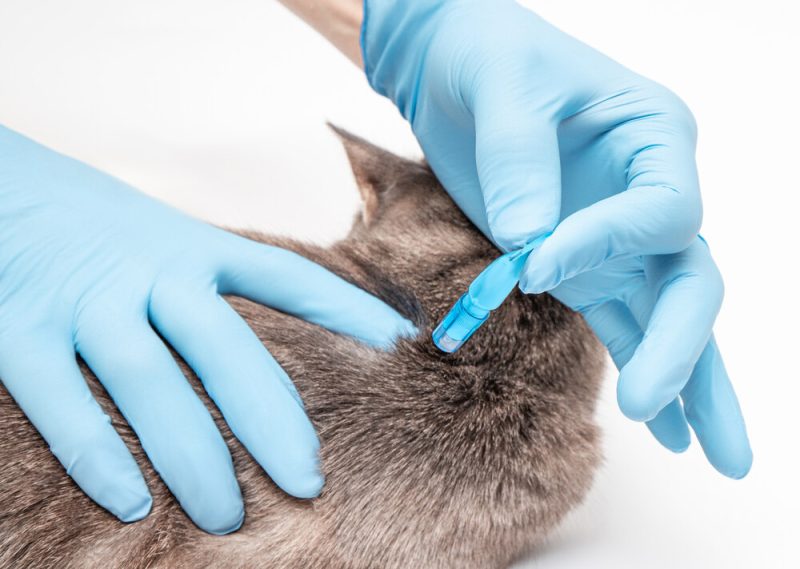
Treatment
The treatment for contagious conditions depends on the underlying cause. If your cat shows signs of illness, contact your veterinarian immediately. With dogs and cats, preventative care is essential. Keep your pet on flea and heartworm prevention monthly, as the Companion Animal Parasite Council recommends. Work with your veterinarian to determine what vaccines your cat should have. Try to limit your cat’s contact with possible sources of disease, such as wild animals and unvaccinated domestic animals.

Frequently Asked Questions
Can Cats Get Parvo From Dogs?
Parvovirus is not contagious from dogs to cats. There is a parvovirus that affects cats, but it is not the same virus that causes disease in dogs.
How Do Cats Catch Bordetella?
Cats are exposed to Bordetella through respiratory secretions, such as nasal discharge. Cats can get the infection from other cats and affected dogs. In rare circumstances, people can also become affected by Bordetella.

Conclusion
While many illnesses affecting animals are specific to the species, some can infect others. Infections affecting dogs and cats include fleas, roundworms, and rabies. Your veterinarian can help you determine the best preventative care plan to minimize the risk of illness.
- See also: Can Cats Get Dogs Sick?
Featured Image Credit: New Africa, Shutterstock



